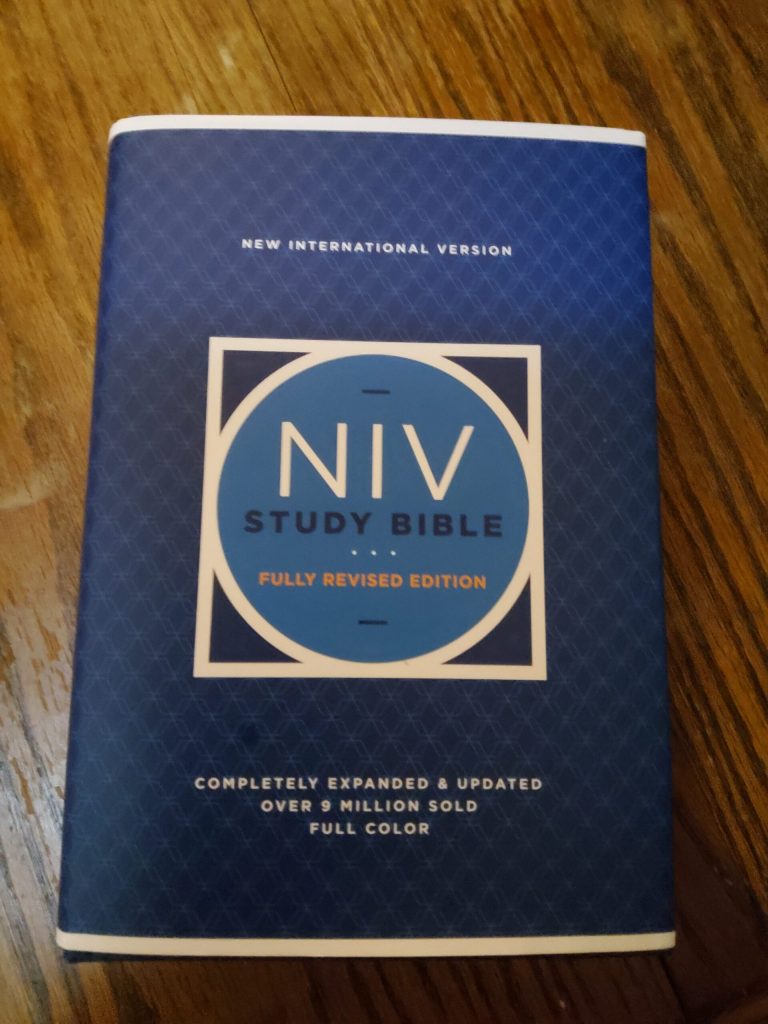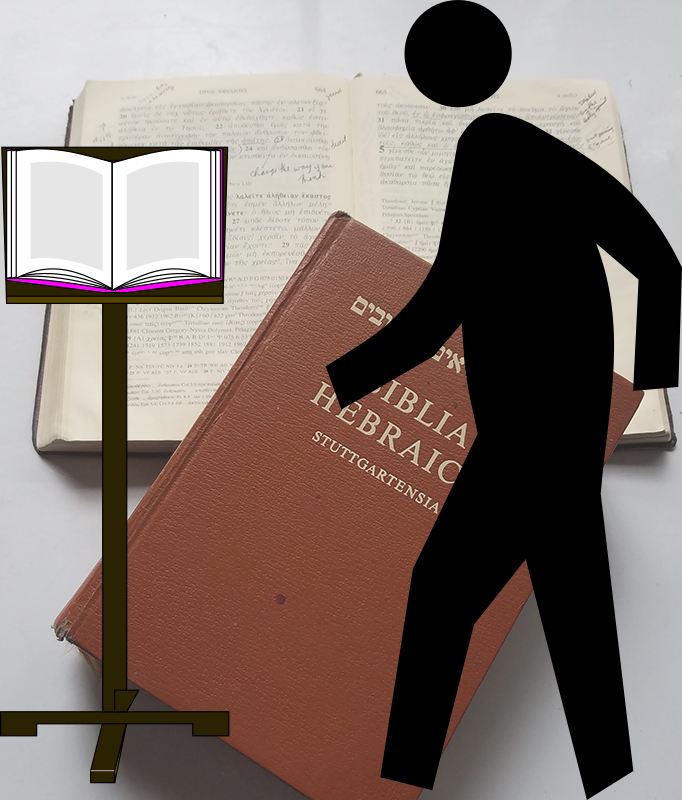The Best Bible Version is the One You Read
 Across the front cover of my book What’s in a Version? I placed the slogan that forms the title of this post. You might think it’s a strange thing to put on the cover of a book. I’ve used it in class as well. I’ve received more criticism for that one line than for anything else in the book.
Across the front cover of my book What’s in a Version? I placed the slogan that forms the title of this post. You might think it’s a strange thing to put on the cover of a book. I’ve used it in class as well. I’ve received more criticism for that one line than for anything else in the book.
I’m in the process of revising the book (though it’s still available), but that one line is something that will not change. Yes, it’s a one-liner, and thus subject to a variety of interpretations. No, I don’t believe that anything that might masquerade as a translation actually is a translation. But there are very few things that I would say masquerade as translations, and there are many people who want to prescribe the Bible you should read.
There are some facts regarding reading a piece of ancient literature. First, I didn’t live in the first century, when the New Testament was being written. I’m at least at one remove, because no matter how much I study Greek, I will never truly understand it in the same context and world as Paul did. Second, if you’re reading in translation, you’re not reading the original. This leads to my third point: Something is always lost in translation.
But that means that something is always present in translation as well. The question is just what you’re looking for. For example, I prefer the more formal style of the Revised English Bible. I even like its Anglicisms. I spent much of my teens in a former British colony (Guyana), and I was born in Canada. Those things are comfortable for me and they give me a familiar feel.
Should I therefore recommend that everyone read the REB? Hardly! For others, features that make it work for me may be a hindrance to understanding. Then there’s the question of just what it is that I want to understand, or more importantly that you want to understand.
What seems to escape so many people who prescribe what a translation must and must not do is that it matters not what is there if the reader doesn’t understand. Admonitions to “get a dictionary” are both pointless, and in my opinion, arrogant. This kind of talk suggests to people that if they would just put in enough work, they’d be able to understand–well–what the talker believes they should want to understand. Maybe I’d prefer the clarity of the CEV of Jeremiah 22:29 to a translation that conveys the epizeuxis. It’s possible that I couldn’t care less about an epizeuxis. In point of fact, I care about the epizeuxis largely so that I can convey it’s meaning in another fashion. At the same time, I do not regard my particular aim as normative. If you want to convey the epizeuxis, by all means do so. It’s not better or worse, it just is what it is.
This lack of concern for the readers–though I’m sure it’s advocates think they are advocates for the spiritual and intellectual well-being of their hearers or readers–is what I like to call the problem of the one-ended telephone cord.
So I frequently frustrate inquirers who want me to recommend a Bible version. I always ask what they want to do with it, and to a great extent I want to know who they are before I will even attempt an answer, and then I’m going to leave it quite open-ended–what do you want? what do you read?
Oh, and credit where credit is due. I was finally tipped to the point of writing this by a post from Kurk at Aristotle’s Feminist Subject, which is well worth reading. I’d also like to reference my Bible Translation Selection Tool, which tries to list Bibles in priority order according to preferences expressed by the user. I’ve been told both that this is much too complicated and also that it can’t be personalized enough, but thus far I haven’t had time to fix either problem, nor do I know that I could fix them both at once.


First, thanks for reading a post of mine (one, ugh, that I wrote all too quickly I’m afraid). Well, now I’m getting you back, reading your post that you have said many useful things in.
Second, I love this line that you wrote here: “But that means that something is always present in translation as well”!!!
Third, really, people have complained that you have to “fix” the helpful tool you’ve created for them?! Too complicated? Not at all! Not personalized enough? What do they want, one of the live-in robots from the Jetsons? (My only wish is that you’d add some of my favorite translations: any or all of the growing number of Hebrew Bible book translations by Robert Alter; Everett Fox’s translation of the Five Books of Moses; Julia Evelina Smith’s entire Bible; Willis Barnstone’s Restored New Testament; Richmond Lattimore’s New Testament; Ann Nyland’s Source New Testament, and her Psalms; Pamela Greenberg’s Psalms; Reynolds Price;s The Three Gospels; the New English Translation of the Septuagint; Brenton’s older translation of the Septuagint; Sir Philip Sidney and Lady Herbert [Countess of Pembroke]’s Psalms. But then that really would make your Bible search tool complicated if more personal perhaps, wouldn’t it?)
Thanks for your kind remarks. I think adding more versions to the selection tool wouldn’t be a problem. If my e-mail is any indication, most people only look at the top four or five results after they make their selection of criteria, so a longer list wouldn’t hurt.
There’s several I need to add, including the ISV. I already have most of those you mentioned on a list, but don’t get too optimistic about that. It takes a bit of time for me to run up the statistics I use. I also need to update for the NIV2011, which should change the gender language settings, though it doesn’t look like it will change the overall stats much.
Oh well, as I often remark, I live Ecclesiastes 12:12!
Some very good points. I love the slogan about the “best” version is the one you actually read. In my studies, which are usually verse by verse, I strongly imply (and try to require) that everyone have a different version, or, at least a version they are currently reading and studying. Some of the best times in the studies come when we compare the various insights presented by the various versions.
When I write my studies, I use my own version or any one of several dozen for each verse used—whatever makes sense to help my readers understand the message best. That’s the goal, that the reader is led into the truth becoming a more mature believer of more use in the Kingdom, right?